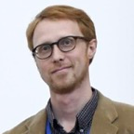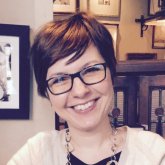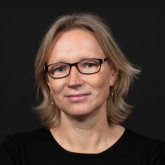Despite decades of biodiversity governance and conservation, the loss of nature and biodiversity continue unabated, while the impacts of climate change are becoming ever more acute. Halting this trend requires transformative changes that challenge the status quo and address the root causes of intersecting social and environmental challenges (IPBES 2019).
Bottom-up initiatives are important catalysts of such transformations and provide opportunities for communities to experiment with local solutions to climate change and biodiversity loss, such as urban agriculture and biodiversity. These initiatives are often driven by alternative values, like care, reciprocity, stewardship and responsibility, and worldviews centred on mutually flourishing relationships between humans and nature, and convivial rather than extractivist and consumerist practices. However, they remain highly localised, which considerably limits their overall impact.
The postdoctoral position will examine and support bottom-up initiatives and support transformative changes aimed at the embedding of biodiversity and climate knowledge within civic structures, institutions, and everyday practices. To this end, they will identify innovative forms of organisation and governance and investigate ways of imagining alternative futures and scaling alternatives. They will also develop innovative transdisciplinary and collaborative approaches to create interstitial spaces where change is being prototyped towards realising wider place-based transformations across urban, rural and rurban spaces.
Key objectives:
1. Conduct fieldwork, interviews, and stakeholder analysis for actors involved in biodiversity and climate change initiatives in The Netherlands. Investigate relevant public policies, socio-cultural factors, social practices, and institutions relevant for biodiversity and climate measures and how values, interests, goals, and frictions hinder or enable transformative change;
2. Explore relevant theories and concepts that allow the analysis of existing alternative initiatives in cities and regions with transformative potential for biodiversity and climate measures (e.g., degrowth, postgrowth, pre-figuration, post-figuration, conviviality, commons). Develop a conceptual and methodological lens to analyse and animate societal and spatial transformations that builds on local alternative initiatives towards repatterning landscapes, public space, economies and everyday life;
3. Use creative approaches and transdisciplinary arts-based methods to elicit, map, and conduct a live archiving of situated biodiversity and climate knowledge to support local stewardship, inspire community-driven visions of biodiverse and climate resilient urban / peri-urban futures, and co-design transformative pathways and policy-action plans;
4. Develop innovative citizen science monitoring and public events to support networking, knowledge-sharing and dissemination in the context of activating the embedding to embed and promote biodiversity stewardship and climate-relevant local knowledge within everyday practices.
The postdoctoral position is embedded within two NWA projects funded by the Dutch research Council: “Planting seeds for biodiverse and just rurban futures: Realizing a knowledge infrastructure for biodiversity commons” (NWA Innovative projects within the Green Route); and “COMBINED: Combatting biodiversity loss and improving climate change resilience through evidence-based, integrated, and adaptive landscape governance in the Netherlands” (NWA Climate and Nature). In COMBINED, 24 societal organization and knowledge institutes, including municipalities, NGOs, businesses and (applied) universities, team up to simultaneously tackle climate change and biodiversity loss in the Netherlands. COMBINED aims to generate new insights and to develop tools to be implemented in landscapes with grasslands, forests and urban areas a just way, considering policy goals, values and interests of society. In COMBINED we operate as a team and work jointly on project activities across landscapes, building upon each other's expertise and experiences. For more information on the project [https://www.combined-project.eu/].
The successful candidates will be affiliated with the RUrban Futures Collective of the Department of Technology, Policy, and Society, at the University of Twente. The Collective takes a critical and transdisciplinary approach to sustainability transformations, addressing the role of science and technology in the context of existing and potential future rural-urban interactions. The positions will be embedded in a vibrant work environment with diverse research projects addressing rurban themes and opportunities for collaboration and exchange across diverse disciplines and sections. In particular, the postdocs will collaborate with a research team based at TPS including Dr. Steven McGreevy, Dr. Corelia Baibarac-Duigan and Prof. Esther Turnhout. Opportunities for collaboration will extend to ITC, the University of Twente’s Faculty of Geo-Information Science and Earth Observation, through Prof. Wieteke Willemen.
Information and application
Are you interested to be part of our team? Please submit your application before 1 May 2025 and include:
- A cover letter (maximum 2 pages A4), emphasizing your specific interest, qualifications, and motivations to apply for this position;
- A Curriculum Vitae, including a list of publications and references;
- A writing sample (e.g., a published academic article or a chapter of your dissertation);
- Contact information for two academic references (Please note, we will not contact these references before notifying the candidate that we intend to do so);
- Interviews will be conducted on the 15th and the 22nd of May (in person or online depending on availability).
In-person (preferred) or online interviews will be held in the second-half of May 2025.
Additional information, including detailed project descriptions, can be acquired via email from Dr. Steven McGreevy (CSTM) (s.r.mcgreevy@utwente.nl) or Dr. Corelia Baibarac-Duignan (KiTES) (c.e.baibarac@utwente.nl).
About the department
At the Department of Technology, Policy and Society (TPS), we engage in research and education on the interplay between technology, society and policy, helping society to manage the opportunities and tensions between (new) technologies and changing needs.
The TPS department is dedicated to encouraging a supportive and inclusive working culture. Our aim is that all job applicants are given equal opportunities. When we select candidates for employment, it will be on the basis of their competence and ability. To support the workforce diversity, we are open to offer flexible working conditions on an individual basis to support work-life balance, that may include contract of employment, working hours and location, or childcare arrangements.
About the organisation
At the Faculty of Behavioural, Management and Social Sciences (BMS), we unite the worlds of people and technology to address today’s complex societal challenges. We are passionate about understanding human behaviour, fostering responsible innovation, and designing solutions that create societal value. Our educational programmes span disciplines such as Psychology, Business Administration, Public Administration, Communication Sciences, Philosophy, Educational Sciences, and Health Sciences. Through our bachelor’s and master’s degrees, Professional Learning & Development programmes, and interdisciplinary research themes – including Emerging Technologies & Societal Transformations, Resilience, Smart Industry, Learning, and Health – we empower students and researchers to make a positive societal impact.
At BMS, we combine critical thinking with practical action. From advancing sustainable mobility with innovations like the world’s most efficient hydrogen car to shaping policies that promote digital inclusion, our work contributes to a healthier, fairer, and more sustainable future. Whether it’s exploring how technology influences human behaviour or leveraging data and innovation to transform industries and communities, we ensure that technology serves people – and not the other way around.
As an employer, BMS offers a vibrant, inclusive, and entrepreneurial environment where you can thrive personally and professionally. Join us and become part of a forward-thinking community that equips you to shape the future – for yourself and society. With us, you will become part of a leading technical university with increasing, positive social impact.




